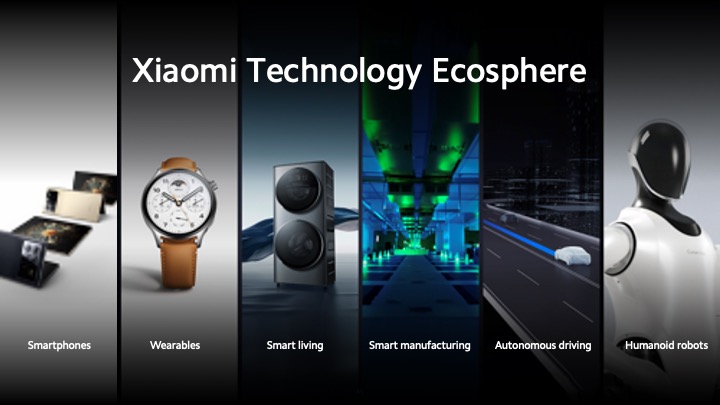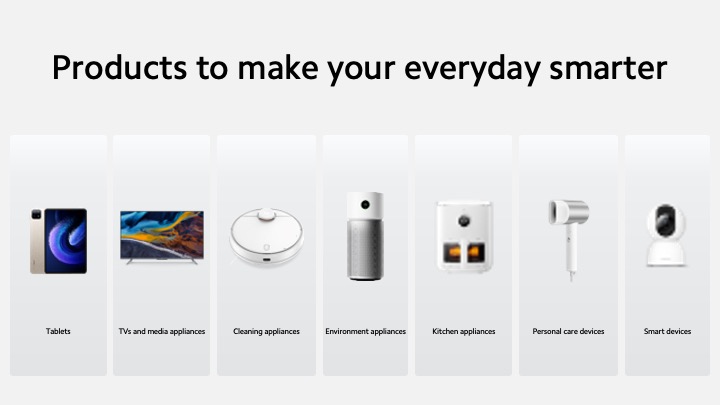
Xiaomi Kenya has unveiled its global “Human x Car x Home” smart ecosystem, marking a significant step in integrating technology into daily life. Announced at the Radisson Blu in Nairobi, the initiative aims to create seamless interconnectivity between personal devices, vehicles, and homes, setting the stage for a new era of smart living. Dubbed the “Xiaomi Universe,” the company explains that this strategy highlights its ambition to redefine the future of technology for Kenyan consumers.
A Vision of Interconnected Living
Xiaomi says its “Human x Car x Home” strategy builds on its existing “Smartphone x AIoT” framework, enhancing interconnectivity to encompass broader aspects of modern life. Matt Huang, Xiaomi Kenya’s Country Manager, explains that this vision places humanity at the center of technological advancements.
“Our innovations are designed first and foremost based on the needs of our users. By integrating people, cars, and homes, we aim to create an end-to-end ecosystem that enhances every aspect of life,”” said Huang.
The company says the initiative leverages Xiaomi HyperOS, a robust platform supporting over 600 million devices and more than 200 product categories. Xiaomi’s system enables seamless cross-device collaboration, ensuring consistent functionality across the ecosystem.
Technological Innovations Driving the Ecosystem
The “Xiaomi Universe” is underpinned by three core pillars:
- Personal Computing Center:
Flagship smartphones, such as the Xiaomi MIX series and Redmi Note, act as powerful hubs of connectivity. For a closer look at the Redmi Note series, see our Xiaomi Redmi Note 13 Pro+ Review. - Intelligent Mobile Space:
Innovations in electric vehicles (EVs), including the Xiaomi SU7, feature advanced technologies like Smart Cabin, AI-powered navigation, and autonomous driving capabilities. - Smart Living Space:
AIoT-enabled devices, including smart TVs, cleaning appliances, and personal care gadgets, create a cohesive smart home experience.

The Xiaomi SU7, described as a “high-performance eco-technology sedan,” exemplifies this integration. Equipped with proprietary technologies like E-Motor and Xiaomi Pilot Autonomous Driving, the SU7 represents the company’s foray into redefining mobility.
Kenya: A Key Market for Xiaomi’s Growth
Xiaomi says Kenya remains a pivotal market for its global growth strategy. With 11% market share locally, the company ranks as the third-largest smartphone brand in the country, according to Canalys 2024. Xiaomi highlights that initiatives like the 25-month warranty have bolstered its reputation among Kenyan consumers.
By introducing the “Human x Car x Home” ecosystem, Xiaomi aims to expand its footprint further, offering innovative products tailored to the unique needs of Kenyan users. For insights into Kenya’s electric vehicle landscape, read Electric Vehicles in Kenya: Progress and Challenges. However, the company acknowledges that the feasibility of this ecosystem in Kenya depends on the readiness of infrastructure to support interconnected devices and EVs.

Sustainability and Manufacturing Excellence
Xiaomi emphasizes its commitment to sustainability, stating that the company aims to achieve carbon neutrality by 2040. For a broader perspective on sustainability efforts in tech, explore How Tech Companies Are Addressing E-Waste. It has adopted a circular economy model, targeting the recycling of 38,000 tons of electronic waste between 2022 and 2026.
Xiaomi’s manufacturing innovations, exemplified by its Smart Factory Phase II in Beijing, further reflect its focus on efficiency and precision. The company’s ventures into robotics, including the CyberDog 2, underscore its pioneering spirit in emerging technologies.
Globally, Xiaomi’s position as a leading technology brand is evident. It ranks among Fortune Global 500 companies for the sixth consecutive year and was included in TIME’s Most Influential Companies of 2024. With 685.8 million monthly active users as of September 2024 and a vast ecosystem of interconnected devices, Xiaomi has established itself as a major player in the tech industry.
Challenges and Opportunities
Xiaomi acknowledges that while its vision is ambitious, challenges remain. In Kenya, for instance, the adoption of EVs and IoT devices is still in its infancy. The company highlights that infrastructure gaps, such as charging stations for EVs and reliable IoT networks, could hinder the ecosystem’s growth. Additionally, it notes that competition from other tech giants may test its ability to capture and maintain market share.

However, the introduction of initiatives like Xiaomi HyperOS and strategic collaborations with global partners position the company well to address these challenges. By focusing on affordability and accessibility, Xiaomi could redefine smart living for a broader audience in Kenya.
The Road Ahead
Xiaomi’s “Human x Car x Home” strategy represents a significant evolution in the integration of technology into daily life. By placing humanity at the core of its innovations, Xiaomi aims to create a seamless, interconnected future. Whether this vision fully materializes in Kenya will depend on local infrastructure, consumer adoption, and competitive dynamics.
As Xiaomi continues to push boundaries, the “Xiaomi Universe” offers a glimpse into the future of smart living, where technology connects every aspect of life in meaningful and transformative ways.






